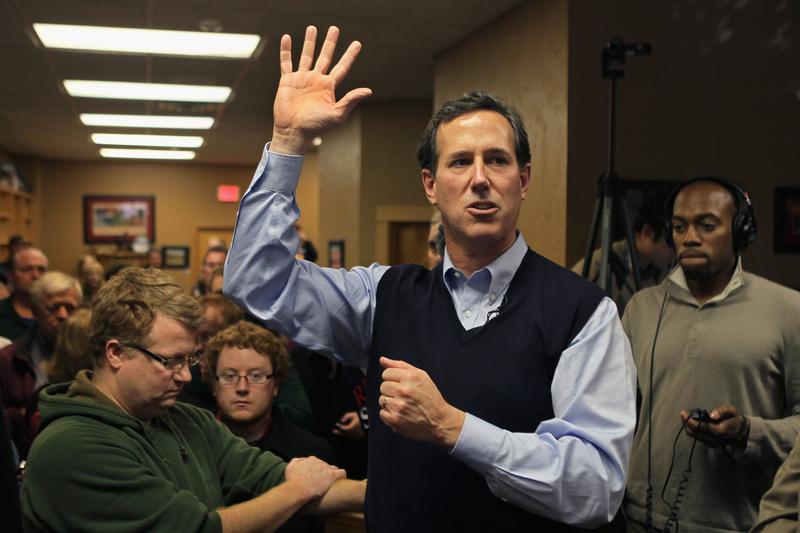
So apparently, Iowa’s election officials not only committed an epic fail in securing and counting the votes that came out of its ridiculous little caucus process – they’ve made the decision to call the outcome a “tie” between the nominal winner Mitt Romney and the probable winner Rick Santorum. A tie.
If only the Supreme Court had come up with that notion when Al Gore and George W. Bush fought what we now recognize was a battle for the future of the world in Florida in 2000. (A battle, we might add, that the world lost.) By definition, real-world elections do not end in ties. Which only underscores the fact that the Iowa caucuses are not the real world, but a bizarre, media-generated fiction.
We’ve put up with Iowa’s absurd, self-serving fetish over its early-bird electoral positioning ever since 1972, when the New York Times made the mistake of highlighting Iowa's choice timing in the nominating process in an article series about states that don't use traditional primaries. Ever since then, the Hawkeye State has been like those annoying commenters who waste bandwidth shouting "first" on blogs – repositioning its caucuses earlier and earlier in the cycle to ensure its primacy, to the point where one could easily imagine Iowans trying to organize hangover-clouded caucuses on New Year’s Day. And all of us have done nothing but enable their weird obsession, especially those of us in the media.
Like a mindless herd, we journalists have anointed Iowa the nation’s presidential kingmaker, and established a narrative that assigns the candidate winning the state “momentum” and “electability”…despite the fact that the caucuses aren’t even a binding vote.
Our complicity in the Iowa fantasy has given candidates no choice but to engage in months of abject genuflection toward the obscure and tiny Iowa primary electorate – estimated at about 120,000 individuals for each party – spending ridiculous amounts of time and money.
This year, $12.4 million was spent by candidates on Iowa advertising, which doesn’t even count the firehose of super-PAC cash or the costs of ground teams, candidate travel (in the case of Rick Santorum, to every one of Iowa’s 99 counties) and corn dogs. A more complete (and still conservative) estimate would put the expense at well over $300 a person for Iowa’s 120,000-odd voters – who make up less than 4 percent of Iowa’s population, and about 0.04 percent of the U.S. population as a whole.
And they are “odd” voters – far whiter, more conservative, and more likely to be evangelical Christians than the Iowa or U.S. norms. Yet we’ve given this handful of self-entitled fringe activists wildly disproportionate voice in determining who should be the standard-bearer for our political parties, and ultimately, who might serve as the leader of the free world for the next four years.
The patently insane outcome of this year’s GOP caucuses is the straw (poll) that broke the camel’s back. Iowa’s overweening leverage over the presidential process must end. Journalists, bloggers, activists, party officials, candidates current and future – from this point on, let’s all just agree that no one should give a corn-fed crap what Iowa thinks about the political process, for ever and ever, amen.